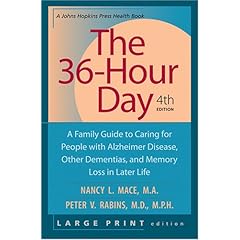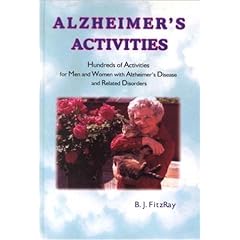
Approximately one in seven, or 3.4 million, Americans age 71 and older has dementia, and 2.4 million have Alzheimer's disease, according to a new analysis supported by the National Institutes of Health (NIH). It is the latest in a series of analyses attempting to assess the prevalence of dementia and Alzheimer's, the most common form of dementia.
One in Seven Older Adults Has Dementia
Approximately one in seven, or 3.4 million, Americans age 71 and older has dementia, and 2.4 million have Alzheimer's disease, according to a new analysis supported by the National Institutes of Health (NIH). It is the latest in a series of analyses attempting to assess the prevalence of dementia and Alzheimer's, the most common form of dementia.
The study is the first to estimate rates of dementia and Alzheimer's using a nationally representative sample of older adults across the United States.
Brenda Plassman, PhD, of Duke University Medical Center, in Durham, NC, worked with Kenneth Langa, MD, PhD, and David Weir, PhD, of the University of Michigan, in Ann Arbor; Robert Wallace, PhD, of the University of Iowa, in Iowa City; and others to conduct the analysis as part of the Aging, Demographics and Memory Study, which is a substudy of the Health and Retirement Study (HRS).
HRS is the leading resource for data on the combined health and economic circumstances of Americans over age 50. The substudy and HRS are sponsored by the National Institute on Aging (NIA) under a cooperative agreement with the University of Michigan.
The study highlights the nationwide reach of dementia, which affects not only those with the disease but their families and communities as well.
"As the population ages during the next few decades, the prevalence of Alzheimer's will increase several-fold unless effective interventions are discovered and implemented," said NIA director Richard Hodes, MD. "These data underscore the urgency of research in this area."
The study included 856 HRS participants age 71 and older from 42 states in 2001-2003. Duke researchers conducted home evaluations to gather information about each participant's cognitive and functional status and symptoms, neuropsychiatric symptoms, medications, medical history, and family history of memory problems. Prior neuroimaging and laboratory results also were obtained.
A team of clinicians reviewed the evaluation information and made a preliminary assessment of cognitive status. A consensus panel of medical experts used diagnostic criteria to determine if the participant had normal cognitive function, cognitive impairment without dementia, or dementia. The criteria also were used to discern the type of dementia, such as Alzheimer's or vascular dementia, the second most common cause of dementia in older adults.
Based on the experts' classifications, the researchers estimated the national prevalence and total numbers of people age 71 and older, by age group, with any dementia and with Alzheimer's or vascular dementia. They determined that 13.9 percent of Americans age 71 and older have some type of dementia, 9.7 percent of people in that age group have Alzheimer's, and 2.4 percent have vascular dementia. Alzheimer's accounted for about 70 percent of all dementia cases among people 71 and older.
The substudy analysis showed that the prevalence of dementia increases significantly with age: 5 percent for ages 71-79, 24.2 percent for ages 80-89, and 37.4 percent for 90 or older. The estimated rate of Alzheimer's also rose greatly with older age, from 2.3 percent for ages 71-79 to 18.1 percent for ages 80 to 89 and 29.7 percent for age 90 and older.
Fewer years of education and the presence of at least one APOE e4 allele, a genetic risk factor for Alzheimer's, were found to be strong predictors of dementia.
The substudy data will be valuable in assessing the impact of dementia, said Richard Suzman, PhD, director of the NIA Behavioral and Social Research Program, which jointly directs the HRS. The information about the health, economic and family resources of individuals in the study "will help us to characterize more fully the burden of dementia on individuals, caregivers and the nation's health care system."
Previous studies included lower age ranges than the substudy, broader characterizations of dementia, or participants in a specific community as a base for national extrapolations. A 1998 study combined data from four community-based studies, estimating that the national prevalence of Alzheimer's in individuals age 60 or older would rise from 2.3 million in 1997 to 8.6 million in 2047.2 Widely cited estimates based on the prevalence of Alzheimer's in a Chicago-based community and an earlier comparable study using data from East Boston forecast the number of those age 65 or older with Alzheimer's to be 5.1 million in 2010.3,4
References
1.Plassman, B.L., et al. (2007). Prevalence of dementia in the United States: The Aging, Demographics and Memory Study. Neuroepidemiology, 29: 125-32.
2.Brookmeyer, R., et al. (1998). Projections of Alzheimer's disease in the United States and the public health impact of delaying disease onset. American Journal of Public Health, 88: 1337-42.
3.Hebert, L.E., et al. (2003). Alzheimer disease in the U.S. population. Archives of Neurology, 60: 1119-22.
4.Evans, D.A., et al. (1990). Estimated prevalence of Alzheimer's disease in the United States. Milbank Quarterly, 68: 267-89.



